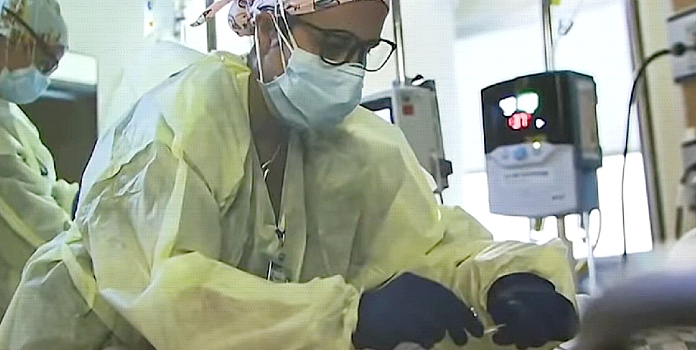(Dmytro “Henry” Aleksandrov, Headline USA) It was announced by a team of American scientists that a “kill switch” that triggers the death of cancer cells in humans was discovered.
According to Slay News, the discovery is considered a breakthrough in the fight against cancer.
The researchers at the University of California, Davis Comprehensive Cancer Center in Sacramento, Calif., were able to find the “kill switch” when they identified a protein on the CD95 receptor that can “program” cancer cells to die, as it was indicated in a study that was published in the peer-reviewed Nature journal Cell Death & Differentiation.
The news publication also added that a receptor is a protein within a cell that receives and transmits signals.
CD95 receptors — also referred to as Fas — have gained the nickname “death receptors” because they send a signal that causes cancer cells to “self-destruct,” a press release from UC Davis that was obtained by Slay News stated.
“Previous efforts to target this receptor have been unsuccessful. But now that we’ve identified this epitope (target), there could be a therapeutic path forward to target Fas in tumors,” Jogender Tushir-Singh, an associate professor in the Department of Medical Microbiology and Immunology and senior author of the study, said.
Future cancer drugs could boost the activity of these CD95 receptors to create a new weapon against cancer tumors that have been treated historically with surgery, chemotherapy and radiation, according to the scientists.
The researchers also informed the public that immune-based therapies, such as CAR (chimeric antigen receptor) T-cell therapy, have shown promise for a subset of patients. However, they have had limited effectiveness against many cancer types.
“Despite being decently successful in liquid tumors, such as leukemia spectrum cancers, long-term remission remains the biggest challenge for CAR T-cell therapies,” Tushir-Singh said.
The scientists also noted that the bigger challenge with this therapy — which typically costs $500,000 or more — is that it has only shown “meager success” in treating solid tumors.
“Our study strongly provides a comprehensive takeaway and potential solution to transform the meager success of CAR-T therapies into potentially successful [therapies for] solid tumors.”

